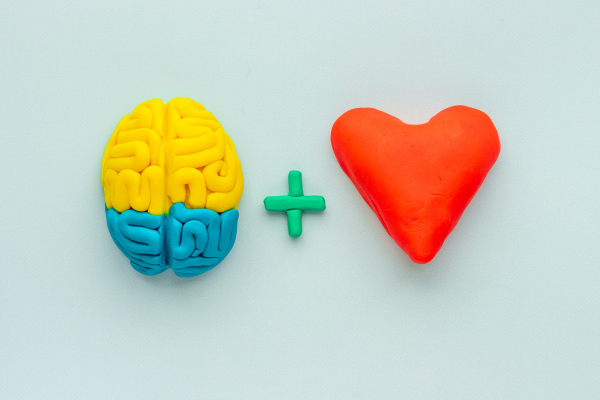Over the years, significant efforts have been made to define the parameters of a healthy emotional well-being. However, when faced with challenging situations—be they stressful, irritating, or seemingly irrational—we often mistreat ourselves by defaulting to familiar phrases reiterated by family or friends. We're told to detach our emotions and rely on reason or to refrain from being overly emotional about things. We may be deemed an emotional wreck, but our emotional experience will never be so simple. Our emotions can serve as invaluable guides for our behavior, decision-making, and relationships.
At Balanced Wellness, we define emotional well-being as follows:
"The emotional dimension of well-being encompasses the awareness, expression, and acceptance of one's feelings. It involves cultivating a positive and affirming growth mindset, acknowledging that we may encounter trials but have the capacity to overcome them. This dimension entails building a support system and fostering a resilient attitude to combat negative self-talk, fear of failure, and other barriers that hinder personal growth."
True emotional well-being encompasses the entire spectrum of human emotions. It allows for the full range—from happiness to sadness, anger to appreciation, love to hate, and beyond. However, it is crucial to express these emotions appropriately, finding outlets that resonate with who we are as an individual. This might involve journaling to dive deeper into our feelings or seeking out a compassionate listener. No matter how you choose to cope, reflect, or evolve, choosing to spend time sitting with our feelings and learning from them develops resilience. Nurturing a strong, resilient attitude entails not only bouncing back from emotional challenges but also growing from them—a key component of overall well-being.
Aligned with emotional resilience are the concepts of emotional intelligence and emotional agility—two related yet distinct ideas. Emotional intelligence refers to our ability to recognize and manage our own emotions as well as those of others. Coined by American psychologists John Mayer and Peter Salovey in 1997, emotional intelligence, often referred to as EQ (emotional quotient), measures our capacity to understand, regulate, and facilitate emotions through four facets: perceiving, understanding, managing, and facilitating thought. Developing EQ is considered a valuable soft skill that requires practice and manifests itself in various ways.
More recently, psychologist Susan David has identified skills and tools to transcend stagnation and embrace change. These strategies enable us to live healthier lives, both within ourselves and in relation to the world around us. Known as emotional agility, it places greater emphasis on being mindfully aware of our emotions, accepting them, and making choices that align with our individual values. David proposes a four-step process as a starting point for initiating behavioral changes prompted by emotional responses:
Be present: Feel and acknowledge your emotions.
Take a step back: Create distance and gain clarity on the situation.
Take action: Make decisions based on your own values and long-term goals.
Let it go: Accept your decision and move forward.
As is the case in many well-being and leadership circles, we consistently see that connection prevails. We are fulfilled when we feel connected to ourselves and to others. As we bounce back from difficult situations and everyday challenges, we can implement personal strategies for success, using a variety of methods and tools to enhance our emotional awareness and agility around ourselves and others. Remember! Well-being is a journey….keep traveling! We are here to help you grow and offer resources.

